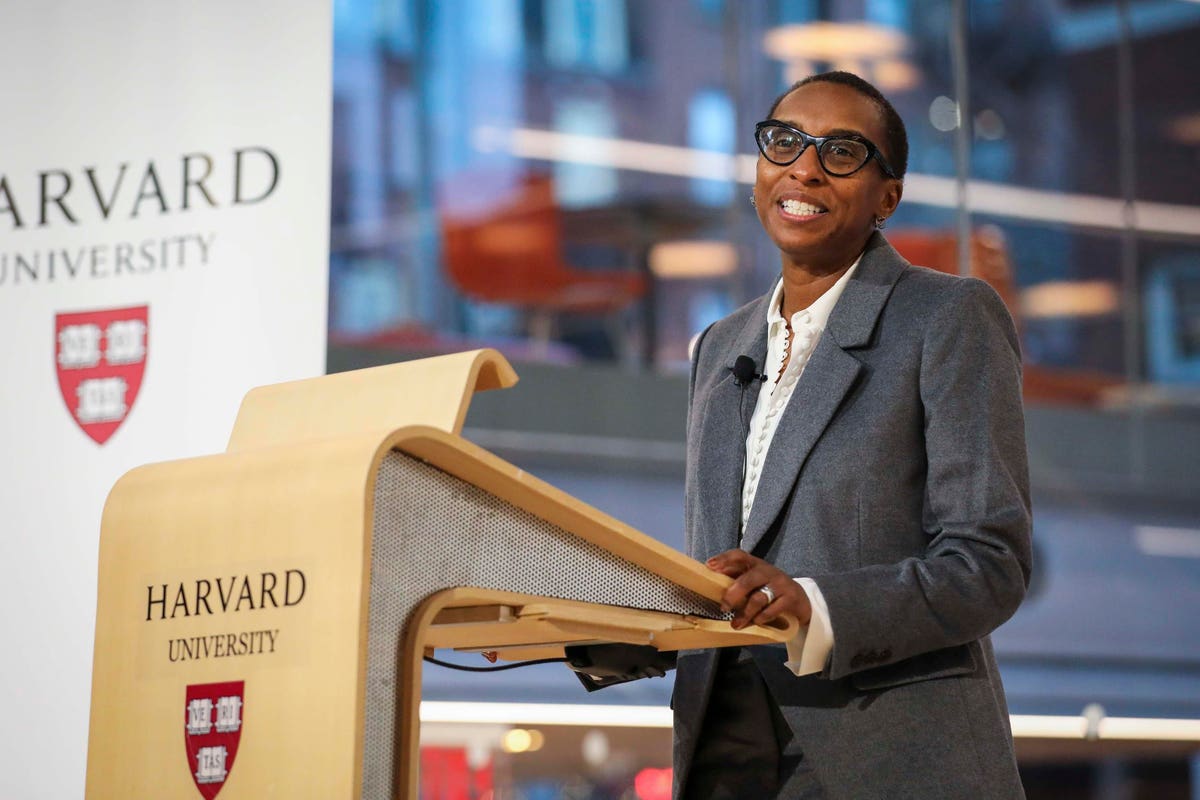This past weekend, I watched with great pride as Dr. Claudine Gay gave her inaugural address as Harvard University’s 30th president. She became the first person of color and the second woman to hold this post. I could not help but juxtapose the fact that she was inaugurated to lead the university with the largest endowment in the world, an endowment that is more than twice the GDP of her parents’ homeland of Haiti, which remains the most impoverished country in Latin America and among the most poverty-stricken countries in the world.
Throughout her speech, Dr. Gay stressed the importance of asking why. She indicated that “we should love truth enough to ask why” and that “the goal of why is not comfort. It is knowledge. Knowledge is what transforms lives. Knowledge is our purpose.” She then transitioned to asking a series of “why not” questions, which she indicated is necessary to improve the world.
On Haiti
She asked, “why not improve the healthcare in Haiti and Rwanda?” Just three days before Dr. Gay’s speech, an armed gang opened fire inside the Hôpital Universitaire de Mirebalais, Haiti’s 350-bed teaching hospital. Reportedly, 50 percent of the patients fled the facility. I volunteered to treat patients and teach residents in that hospital before the Covid-19 pandemic, as it is the only neurology training program in the entire country. Since the earthquake that devastated Haiti in 2010 destroyed the University Hospital in Port-au-Prince, the hospital where I was born, the hospital in Mirebalais has been the principal teaching hospital on the island.
Haiti has struggled for centuries, having been colonized, enslaved, and won its independence from France on January 1, 1804 through the world’s first successful revolution of enslaved people. But even after gaining independence, the country has continued to struggle through numerous occupations by foreign governments, bloody dictatorships, coup d’états, and natural disasters including the 2010 earthquake. That earthquake decimated the government and healthcare infrastructure, and remains the deadliest natural disaster in the history of the Western Hemisphere. The country is still recovering from that devastation. Sadly, in the midst of recovery, the President was assassinated, which has made the country even more vulnerable to lawlessness, which has now breached the walls of the remaining healthcare infrastructure.
Health Disparities
Dr. Gay also asked the question, “why not eliminate health disparities” here in the U.S. She asked this question exactly three months from the June 29, 2023, U.S. Supreme court ruling against Harvard University, which held that race-based affirmative action programs in college admissions processes violate the equal protection clause of the Fourteenth Amendment. In her dissenting opinion in that case, Justice Ketanji Brown-Jackson made a strong case for the role that affirmative action in higher education has in helping to eliminate health disparities. Numerous studies have demonstrated better health outcomes in minoritized patients who are cared for by medical providers from the same race.
On July 3, 2023, a nonprofit organization filed a civil rights complaint against Harvard indicating that Harvard’s legacy admissions policy discriminates against students of color by giving an unfair advantage to children of alumni, who are predominantly White. There are many who agree that legacy admissions policies are one of the factors that perpetuate inequities in higher education. For this reason, Johns Hopkins University, and other universities, did away with legacy admissions. Johns Hopkins University President Ronald J. Daniels indicated that “as powerful engines for social mobility, universities must do more to ensure access for those with fewer socioeconomic privileges and first-generation students.”
The Journey
Dr. Gay has already been doing much of the work needed to start tackling her “why not” questions. She received her bachelor’s degree from Stanford University in 1992 where she majored in economics and won the Anna Laura Myers Prize for the best undergraduate thesis. In 1998, she received her Ph.D. in government from Harvard, where she won the Toppan Prize for best dissertation in political science. After graduating from Harvard, she went to Stanford, where she served as an assistant, then tenured associate professor before returning to Harvard in 2006 as a professor of government. She served as dean of social science from 2015 to 2018 and then dean of the faculty of Arts and Sciences at Harvard since 2018
Dr. Gay is well known for her research on American political participation. She is the founding chair of Harvard’s Inequality in America Initiative, a multidisciplinary effort that has researched the effects of child poverty, inequities in STEM education, immigration and social mobility, democratic governance and American inequality.
I do hope that Dr. Gay will use what influence she has as the president of Harvard University to ensure that Harvard leads the way in helping places like Haiti and Rwanda get better health care and take the measures that are needed to eliminate health inequities here in America. I also hope that Dr. Gay will maintain the courage to ask why and why not so she can find truth and better understanding of the challenges we face in our nation and take steps to transform the lives of those who are privileged and those who have been marginalized, and by doing so allow Harvard University and our country to truly be at its best.
Read the full article here





